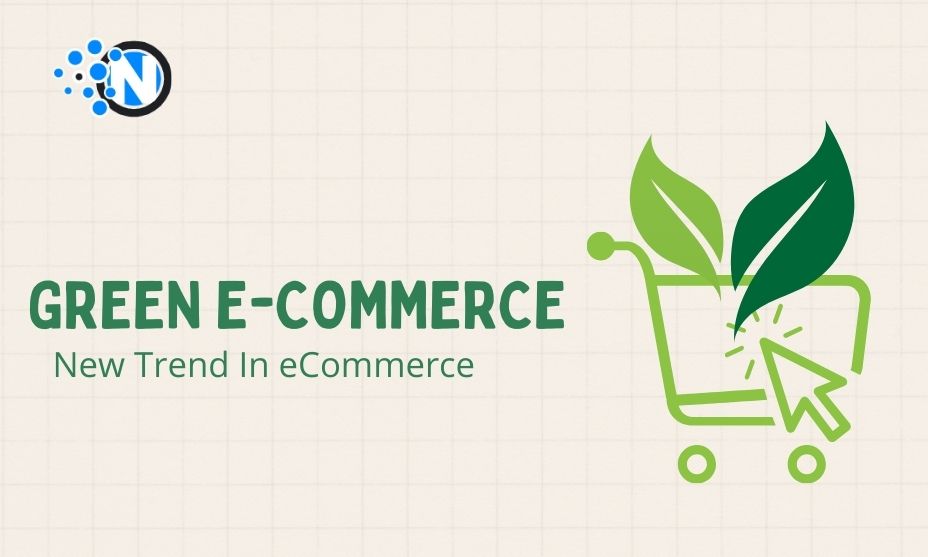Going Green -The New Trend In eCommerce

In recent years, the worldwide community around sustainability has reached a crescendo, compelling industries to re-compare their environmental impact. Within this context, eco-friendly eCommerce has emerged as a crucial fashion, revolutionizing the way in which online retail operates. This article explores the importance of this movement, its implications for agencies and consumers alike, and the strategies forward-questioning businesses observe to boost the sustainability of their operations.
What Is Green eCommerce?
In an increasingly prioritizing sustainability, green eCommerce stands at the leading edge of a monumental shift toward environmentally aware practices in online retail. As consumers emerge more aware of the environmental impact of their purchases, there is a developing call for sustainable merchandise and obvious supply chains. Eco-friendly eCommerce addresses these issues with the aid of integrating inexperienced practices into every factor of online retail operations, from sourcing materials to packaging and transport.
Businesses in the eCommerce sphere are rapidly adapting to meet this call for, imposing techniques along with carbon-neutral shipping, eco-friendly packaging options, and partnerships with eco-aware suppliers. This fashion now not only effectively aligns with client values but additionally gives large opportunities for companies to distinguish themselves as leaders in sustainable trade, using amazing environmental change even as fostering consumer loyalty and being given as proper.
The Rise of Eco-Friendly eCommerce
Consumer Awareness: Today’s customers are more and more environmentally aware, with a heightened cognizance of the impact their buying choices have inside the international. They actively attempt to find green merchandise, favoring manufacturers that are willing to sustainably and moral practices. This shift in client conduct has propelled inexperienced eCommerce to the main part, encouraging online retailers to align their services with the evolving values.
Sustainable Packaging: One of the most seen manifestations of eco-friendly eCommerce is the massive adoption of sustainable packaging practices. Online stores are more and more moving far from traditional plastics toward biodegradable, recyclable, or reusable materials. From compostable mailers to cardboard boxes sourced from responsibly managed forests, stores are prioritizing green packaging options to minimize waste and decrease their carbon footprint.

Energy Efficiency
In addition to sustainable packaging, electricity efficiency is becoming a key consideration for both clients and online stores. ECommerce systems are spotting the significance of promoting strength-green products, ranging from appliances to electronics, to assist clients lessen their environmental effect and shop on strength fees. Labels which include the European Product Database for Energy Labelling (EPREL) play a critical function in guiding customers toward greener alternatives with the aid of providing transparent records at the electricity performance of products, empowering them to make knowledgeable shopping alternatives that align with their sustainability goals.
New Trends in Eco-Friendly eCommerce
Eco-Friendly Shipping Options: Carbon-unbiased transport has emerged as a pioneering trend in green eCommerce, imparting clients the possibility to offset the carbon emissions generated by means of way in their deliveries. Some online stores have partnered with carbon offsetting corporations to invest in renewable strength tasks or tree planting projects, efficiently neutralizing the environmental impact of delivery. By presenting carbon-neutral transport options, shops now not only display their dedication to sustainability but also empower clients to make environmentally accountable alternatives in the course of buying gadgets.
Product Lifecycle Transparency
In reaction to developing customer calls for proper transparency and duty, agencies are embracing product lifecycle transparency as a cornerstone of inexperienced eCommerce. Companies are increasingly offering detailed records about the origins of their products, which include sourcing substances, manufacturing techniques, and transportation strategies. Moreover, they are apparent approximately how merchandise can be recycled or disposed of responsibly on the prevent of their lifecycle, empowering customers to make informed selections that align with their sustainability values.
Green Certifications and Labels
Green certifications and labels, which encompass natural, honest trade, and strength performance scores like EPREL, play a pivotal function in building purchaser trust and the use of earnings within the inexperienced eCommerce landscape. These certifications are characteristic tangible signs of a product’s environmental credentials, reassuring customers of its sustainability and moral sourcing practices. By prominently showing such certifications, online shops can differentiate their products, appeal to environmentally conscious clients, and domesticate loyalty primarily based on shared values of environmental stewardship and social duty.
Key Focus Areas for Eco-Friendly eCommerce Success
1. Know Your Suppliers: Establishing strong relationships with providers who uphold ethical and sustainable practices is crucial. This entails project thorough assessments of providers’ environmental policies, difficult painting practices, and adherence to regulatory requirements. By prioritizing transparency and responsibility to your supply chain, you can make certain that the products you offer align together with your green values and meet the expectancies of environmentally aware clients.
2. Educate Your Customers: Effective conversation is vital for enticing customers into sustainability initiatives. Provide complete facts about the environmental impact of merchandise, the blessings of choosing eco-friendly alternatives, and hints for reducing carbon footprint. Utilize your website, social media channels, and product packaging to train customers about sustainability and empower them to make environmentally accountable alternatives.
3. Implement Green Practices: Integrating inexperienced practices into daily operations demonstrates your commitment to sustainability. This can also additionally include decreasing energy intake via energy-green lighting fixtures and domestic device, enforcing waste discount strategies including composting and recycling applications, and adopting green packaging materials. By prioritizing sustainability throughout all additives of your company, you could limit your environmental footprint and make a contribution to exceptional environmental trade.
4. Offer Sustainable Shipping Options: Give customers the possibility to pick environmentally friendly transport options. This may also involve partnering with carbon offsetting agencies to provide carbon-neutral shipping using biodegradable or recyclable packaging.
Conclusion
The rise of green eCommerce signifies greater than only a passing fashion, it represents a fundamental shift in how on-line retail operates in reaction to urgent environmental worries. ECommerce businesses must apprehend that sustainability is not optionally available but a need for lengthy-term fulfilment. By embracing eco-friendly practices, groups now not most effective make contributions to a healthier planet but also enhance their logo recognition and foster consumer loyalty.
The benefits of adopting eco-friendly practices expand some distance beyond lowering carbon footprints. They encompass value savings through stepped-forward efficiency, entry to new markets pushed with the aid of environmentally aware clients, and resilience in opposition to evolving regulatory landscapes.
As we move forward, I urge eCommerce groups to do so these days. Start by assessing your modern practices and identifying areas wherein you can make meaningful changes closer to sustainability. Whether it is switching to renewable strength resources, implementing inexperienced packaging solutions, or partnering with eco-conscious providers, every small step counts closer to developing an extra sustainable destiny for eCommerce.
Use the complimentary Product Information Management (PIM) audit service as a method of assistance for this experience. Your eCommerce business can also become more sustainable, extra efficient, and more accurate records-driven by streamlining its product records control processes. Let’s tackle sustainability as a challenge and create a higher, greener eCommerce region by operating collectively.




